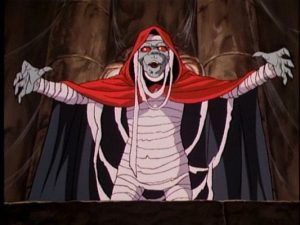
Sad that Game of Thrones has wrapped up its third season? Looking for some drama to fill the time? We've got just the thing for you. One of the Internet's longest-running and most-hated lawsuits is back: SCO v. IBM has been reopened by Utah district court judge David Nuffer.
The case stretches back ten years to March 2003, when the SCO Group filed a massive $1 billion suit against IBM for allegedly contributing sections of commercial UNIX code from UNIX System V, which the SCO Group (allegedly) owned, to the Linux kernel's codebase. SCO Group claimed that the alleged presence of its proprietary code in the open source kernel devalued its proprietary code and that by making the source code available, IBM had violated its license agreement with SCO Group.
From there, the case spawned other cases and quickly ballooned to a truly ridiculous size and scope. The SCO Group demanded royalties from major companies using Linux and filed suit against several (including DaimlerChrysler and AutoZone. Novell stepped in, asserting that it actually held the copyright to the code SCO Group claimed was infringing, which then spun off into its own major lawsuit. Groklaw has an excellent and intricate timeline of the entire mess.
Throughout the case, SCO Group maintained three central claims: first, that it owned System V code that had been illegally used in the Linux kernel; second, that anyone who used Linux owed them money; and third, because the infringing code was proprietary, SCO refused to actually identify any of the code except under a highly restrictive NDA.
SCO Group CEO Darl McBride kept the fires of negative public opinion well-stoked as the cases continued, repeatedly stating that SCO "owned" UNIX and that there were "hundreds" of lines of infringing code in the Linux kernel (an estimate that was later revised to "more than a million").
Actually determining what UNIX code existed in the Linux kernel was a process that stretched out over a number of years and involved a lot of foot-dragging on SCO Group's part. In spite of numerous orders to produce actual evidence, SCO Group never presented a complete corpus of copied code. Samples of allegedly infringing code occasionally trickled out and were quickly analyzed and dismissed by an angry army of developers. In the end, SCO Group failed to produce anything, and in 2006 the court struck most of SCO Group's evidence.
All of the various lawsuits wound down, though it wasn't until 2010 that SCO v. Novell was definitively settled. Which brings us back, finally, to SCO v. IBM. SCO Group filed for bankruptcy back in 2007, but it's still at least somewhat alive and kicking. In March 2013, SCO Group asked the US District Court in Utah to consider its motion to reopen SCO v. IBM, which has been bouncing around the court system since 2011. The judge it's all landed on, David Nuffer, has decided to reopen the case, but he is sticking to the guidelines IBM has suggested on how things should proceed.
It's too early to tell what the possible implications are, and the new judge is taking things slowly as he familiarizes himself with the case. The parties involved are being asked to provide him with background information and details so that he can have at least some idea of what he's being asked to rule on. Groklaw has a number of predictions of how things might shake out; it's entirely possible that IBM will find its motions for summary judgment against SCO reaffirmed.
It's possible, though, that this latest round will drag on for a number of additional years. "Groan," comments Groklaw's Pamela Jones. "Who can believe this is still going on?"
reader comments
103